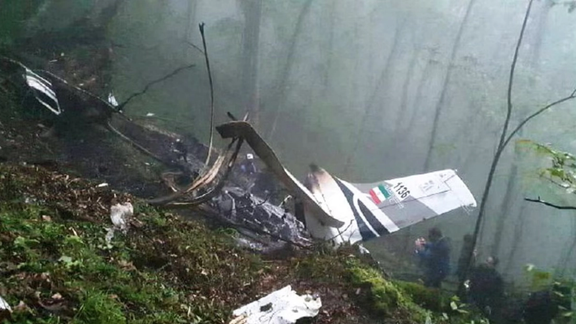Court Files Over 200 Cases Against Iranians Celebrating Raisi Death

More than 200 cases have been filed against Iranians amid the continued crackdown on celebrations of the death of President Ebrahim Raisi last month.

More than 200 cases have been filed against Iranians amid the continued crackdown on celebrations of the death of President Ebrahim Raisi last month.
Mohammad Mousavian, Isfahan's Revolutionary Prosecutor, cited "spreading falsehood and offensive content" and "destabilizing society's psychological stability" as grounds for legal action against the reactions to the sudden death of the President in a helicopter crash during a Presidential visit.
The judicial official said the accused were guilty of "creating, publishing, and republishing falsehood on social networks" and announced "decisive judicial action" against them as "disturbers of the psychological security of society."
After the helicopter crash which also killed the President's delegation, including the foreign minister, many Iranians living inside and outside the country rejoiced and shared their often humorous comments on social networks.
Raisi's death memes and jokes reflected the dire legitimacy crisis that has plagued the establishment under Raisi's oppressive policies which many blame for the economic catastrophe plaguing Iran today.
Iranian authorities, particularly the cyber police, have come down hard on expressions of dissent, escalating surveillance efforts and issuing numerous summonses and legal referrals.
In Kerman province alone, the prosecutor's office disclosed the identification and subsequent disciplinary action of 288 social media users on charges related to societal disruption.
Shaghayegh Mohammadi, the spouse of Esteghlal FC player Mohammad Hossein Moradmand, found herself among those targeted following the posting of a poem by Iranian poet Hafiz, which alludes to the downfall of oppressors.
The legal actions have drawn criticism from entities such as the Iranian Writers' Association, which condemned the suppression of freedom of expression and emphasized the universal right to unhindered speech.
The dire state of freedom of expression in Iran has also been highlighted by Amnesty International, whose 2024 report detailed an unprecedented level of censorship and repression by Iranian authorities, mainly targeting women and dissenting voices.
The report underscores a systematic campaign to stifle fundamental human rights, including freedom of expression, association, and peaceful assembly, through various means such as censorship, satellite channel jamming, and social media platform blocking.